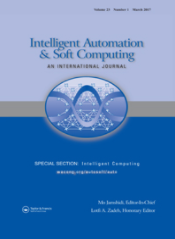 A journal has pulled a paper about predicting people’s faces from their fingerprints due to “significant overlap” with a previous paper by the same authors.
A journal has pulled a paper about predicting people’s faces from their fingerprints due to “significant overlap” with a previous paper by the same authors.
According to the retraction notice in Intelligent Automation & Soft Computing, the authors didn’t cite or acknowledge the other study in the Turkish Journal of Electrical Engineering & Computer Science.
First author of both papers, Şeref Sağıroğlu, who is based at Gazi University in Ankara, Turkey told Retraction Watch that he doesn’t believe the two papers have significant overlap. Still, the research is related, so when he learned the retracted paper didn’t reference the previous one:
…I was really surprised and checked the articles’ references immediately.
According to Sağıroğlu, the reason the retracted paper didn’t cite the earlier one is because the authors submitted the retracted paper for publication in 2006 (which was initially rejected), well before the Turkish Journal of Electrical Engineering & Computer Science appeared in 2009. He added:
We revised the article and resubmitted again to the same journal in 2007. The reviewing process had completed and finally the article was accepted in 2009…Even [though] we paid the fee of the journal, we were told that due to having large number of papers in the queue, the paper would take time to be published. The article was finally published in 2011.
When Intelligent Automation & Soft Computing alerted him to the problem with the paper, Sağıroğlu said he explained why the paper didn’t include a reference to the 2009 paper, and agreed with the journal’s suggestion to publish a correction. But, while waiting for the corrigendum to be issued, a query from a reader prompted the journal to ask Sağıroğlu for details about some of the paper’s figures, according to Sağıroğlu. Ultimately, the journal decided to retract the paper, against Sağıroğlu’s wishes.
Richard Goodman, managing editor of electrical engineering and computer science journals at the Taylor and Francis Group (which publishes Intelligent Automation & Soft Computing) said the journal has
no further comment to make over and above the retraction notice.
Here’s the retraction notice:
The Editors and Taylor & Francis, publishers, of Intelligent Automation & Soft Computing are retracting the following article:
Seref Sagiroglu & Necla Ozkaya (2011) An Intelligent and Automatic Face Shape Prediction System From Fingerprints, Intelligent Automation & Soft Computing, Vol 17:3, 309–317, DOI:10.1080/10798587.2011.10643150
Subsequent to publication it has been determined that the article contains significant overlap with:
Seref Sagiroglu & Necla Ozkaya (2009) An intelligent face features generation system from fingerprints, Turkish Journal of Electrical Engineering & Computer Science, Vol 17:2, 183-203, DOI: DOI:10.3906/elk-0902-2
which was not cited nor otherwise acknowledged. We would like to highlight that the corresponding author has been fully cooperative in this process. We note the Editors and the (then) publishers of the Journal, TSI® Press, accepted and published the article in good faith.
The 2011 study, “An Intelligent and Automatic Face Shape Prediction System From Fingerprints,” has yet to be cited, according to Clarivate Analytics’ Web of Science, formerly part of Thomson Reuters.
The 2009 paper in the Turkish Journal of Electrical Engineering & Computer Science, “An intelligent face features generation system from fingerprints,” has been cited twice — once by another paper by the same authors on face recognition from fingerprints.
Hat tip: Tansu Kucukoncu
Like Retraction Watch? Consider making a tax-deductible contribution to support our growth. You can also follow us on Twitter, like us on Facebook, add us to your RSS reader, sign up on our homepage for an email every time there’s a new post, or subscribe to our daily digest. Click here to review our Comments Policy. For a sneak peek at what we’re working on, click here.